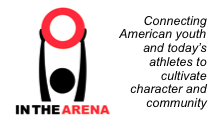San Rafael, August 9, 2008
The past two weeks I have been studying at the San Francisco School for the levels II Orff Schulwerk training. Two years ago when Ms. Rowe relayed to me her idea of founding In The Area, she stressed the volunteer component of giving directly to the communities where the ITA athletes live. This got me thinking, what skills do I possess that I might transfer into my volunteer work. Running and coaching obviously come to mind, but I also hoped to integrate my latent skill in music and dance into a teachable form. While scrambling to put together a comprehensive lesson plan to teach music to kids, my mom and her sister, my aunt, both pointed me towards the Orff Schulwerk, which they have both utilized themselves in the classroom with much success. Two weeks later I attended the annual Orff conference in Omaha Nebraska, with Ms. Rowe's blessings in November 2006, I was completely hooked, and the rest is history: I attended the levels I training last summer 2007, this past year's conference in San Jose, November 2007, and now levels II training August 2008.
The program is a three year program and takes place once a year in August for two weeks. Next year will be my last year, and hopefully I will graduate from level III with an Orff certification. Carl Orff, the founder of the method, composed the famous opera Carmina Burana, he is also founder of the Orff Institute in Salzburg Austria and developed five volumes of scores to facilitate a method of teaching music to children. The method involves movement; mallet instruments like xylophones, glockenspiels, marimba, etc. (but instruments were the bars or keys can be removed, so that scales can be simplified for kids); recorder (flute) instruments; and singing, starting with the solfeggi approach to learning note names with easy to sing syllables like: do, re, mi, fa, sol, la, ti, do, as demonstrated famously in The Sound of Music.
Orff theory involves a sort of species counterpoint that enables children to progress from "little" to "big." We focus on basic musical feeling of harmonic sounds through the body while encouraging improvisation, and performance. Last year in level I I learned a basic approach for teaching K - 3rd grade music with recorder, mallet, voice and movement but while staying exclusively in the Do pentatonic (or five a five note scale), meaning in Do pentatonic taking out the F and B bars or notes in the scale. On the soprano recorder we start with improvising on E and G because the minor third is the easiest interval for kids to sing and also easy to finger on the recorder at 6 years old, which means we need to transpose to Fa and Sol pentatonic. This year I studied the Level II training which is geared for 4th to 7th graders. In level II I learned how to integrate the hexatonic scale (or six note scale), basically adding Fa or a perfect forth interval into Do major; next we learn the complete eight note major and minor scales; and finally we learn the basic modes that complement major and minor (Ionian and Aeolian): Dorian or minor D scale with flatted sixth, Mixolydian or major G scale with flatted seventh, Phrygian or minor E scale with flatted second, Lydian or major F scale with raised forth (tritone interval). This all seems very theoretical but you must keep in mind that we are learning this basic species counterpoint via singing, dancing and playing; there are few formal theory lessons on the chalkboard. Next year I plan on taking level III, which is more advanced, geared to 8th grade and above. In level three I will finally learn how to integrate chordal music into the Orff approach! Doug Goodkin is our level III master teacher. Lord Douglass leads the music department at the San Francisco School, leads the Orff levels training, has his own master classes though out the year, is a world renowned Orff practitioner, and teaches in the "special" yearl long program at the Orff Institute. I am excited to tackle level III next year and beyond! See Lord Douglas' website:
http://www.douggoodkin.com/AboutDougGoodkin/index.shtml
Doug Goodkin has a vision for founding Orff West in San Francisco to bridge the Orff Worlds, and integrate Orff methods into the classroom from sea to shining sea! I am one of many hearty disciples and I look forward to using my new found skills to enlighten the youth in the spirit of In The Arena.
The bond that I have formed with my classmates is unbelievable, now that most of us have completed two years together in an intimate collaboration for two weeks each summer of long days of continual "orffing." Almost all of the levels training attendees are music teachers, with degrees in music, I am the exception, as a coach, though I did study for a music major at Stanford University.
This next season I plan on continue my work with the Eugene South Axemen Cross Country team. In fact, August 12th I plan on rendezvousing with a group out in Elk Lake, on the east side of the Cascades for the end of their summer pre-season camp. I hope to begin teaching keyboard, voice, recorder and movement to students on a private and small group basis this fall.
God Bless! Can you hear the music?!
Gabriel
Saturday, August 9, 2008
Subscribe to:
Post Comments (Atom)


No comments:
Post a Comment